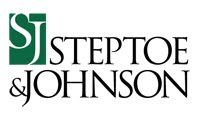Most West Virginia employers must comply with two wage and hour laws: the federal Fair Labor Standards Act (“FLSA”) and the West Virginia Wage Payment and Collection Act (“WPCA”). Both laws restrict the ability of employers to make deductions from employees’ wages.
The FLSA
When an employer makes impermissible deductions from an exempt employee’s pay, the employer risks losing the exemption from the FLSA’s overtime requirement. Generally, to be exempt, the employee must perform certain exempt duties and must be paid at least $455 per week on a salary basis. A salary is a predetermined, fixed amount of compensation that does not fluctuate because of changes in the amount of hours worked from week to week. The general rule is that employers must pay exempt employees the full salary amount for any week in which the employee performs any work regardless of the number of hours worked.
However, there are some exceptions that allow for an employer to make deductions:
-
If the employee is absent from work for one full day or more because of personal reasons other than sickness or disability;
-
For absences caused by sickness or disability if the deduction is made in accordance with a bona fide plan that provides compensation for the lost time;
-
As penalties for violating safety rules of major significance;
-
For unpaid, disciplinary suspension; and,
-
To offset amounts an employee receives as a jury or witness fee, or for military pay.
-
Employers are also permitted to make deductions from an employee’s paid time off as long as the employee receives his or her standard weekly salary. If the employee performs no work in a given workweek, then the FLSA does not require that the exempt employee be paid for that week. Similarly, an employer is not required to pay the full salary in the first and last weeks of employment or when the employee takes unpaid leave under the Family and Medical Leave Act.
The FLSA also contains a provision that allows employers to correct an impermissible deduction and thereby preserve the exempt status of the employee. To take advantage of this “window of correction,” the employer must have a policy that is clearly communicated to employees that prohibits improper deductions. The policy should be in writing and must provide a mechanism by which employees can file complaints. Once a violation is found, the employer must reimburse the employee and make a good faith commitment to comply in the future.
The WPCA
The WPCA limits an employer’s ability to make deductions from an employee’s wages after the wages have been earned, unless the employer and employee have completed a statutorily-required authorization. This includes situations where the employee owes the employer a debt, such as when the employee has charged a purchase to an employee account. Unlike the FLSA, the WPCA restrictions apply to both salary and hourly employees.
An authorization is not required if the deduction is for union or club dues, pension plans, payroll savings plans, credit unions, charities, hospitalization and medical insurance. In addition, deductions without an authorization are permitted when the deduction is for “an amount required by law to be withheld.” This exception is very narrow. Wages that must be garnished pursuant to a court order, such as child support obligations, would meet the exception.
If the deduction is for any reason other than those listed above, then the employer must use a wage assignment form. The West Virginia Division of Labor has posted a sample form on its website, and employers should use this form. The assignment cannot exceed one year. It must be signed by the employer, acknowledged by the employee, and notarized. It must also specify the total amount due and collectible by virtue of the assignment and state that three fourths of the employee’s periodical wages are exempt from the assignment.
© Steptoe & Johnson PLLC. All Rights Reserved.


